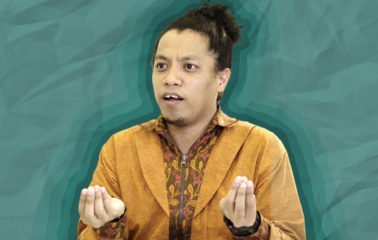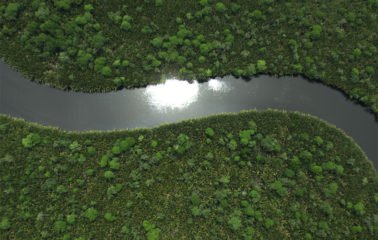As the first area of oil palm cultivation, North Sumatera is one of four provinces in Indonesia that widest oil palm plantations. In 2004, the oil palm plantation has reached the total width of more than 844.000 Ha, and now it’s expanded to 1,2 million Ha. This expansion happened because there was a conversion in the lands of food agricultural and forestry. The food agricultural conversion took place in Langkat, Serdang Bedagai, and Labuhanbatu. Meanwhile, the forestry conversion took place in the south area of Tapanuli.
Approximately 100.000 Ha of lands in Mandailing Natal, South Tapanuli, Padang Lawas North Padang Lawas, and Padang Lawas have been converted into a palm oil plantation (source: OPPUK, 2013). There are at least 60 plantation companies that registered to operate their business in those four areas. The majority of local people in South Tapanuli and Mandailing Natal rely on the natural resources that grow in the forest, such as honey or nira water that is taken from the palm tree. They, then, process the nira water to produce palm sugar as their source of income.
Huta Raja is one of the villages in Batang Toru, South Tapanuli. There are still many local people there who depend their lives on making palm sugar in order to get income. They’re also called as the “craftsmen” of palm sugar. Some people also work as coffee farmers and another kind of plants. Most of the palm trees they take care of are located around the forest, whether it’s close to the village or the ones in Sibual Buali. Sometimes they even have to take 1-2 hours walk in order to get to the palm trees. But, besides producing palm sugar from nira water, some people also use the seed or fruit from the palm trees to make kolang-kaling (a kind of palm fruit).
In the making process of palm sugar in Huta Raja, there’s a role classification between man and woman. Usually, the women are in charge of the cooking, mintage, and marketing process. Meanwhile, men are the ones who climb the palm trees and cut through them so they’re able to collect the nira water. But regardless of what their roles are, they always help each other out. This role classification system has been applied since a long time ago and people seem to have high respect for that tradition.
The sugar palms maker feel that their work has been very helping in fulfilling their every day’s needs. It gives them Rp 1-2 million every month, so it’s not that bad at all. Besides, the work itself doesn’t take too much time so they still have enough time to work on the farms.
But for the past few days, they’ve been feeling worried because there’s a prohibition from the government to enter the forest in Sibual Bali and it limits their access to the forest. This prohibition makes it difficult for local people to collect timbers they need for roasting the sugar. Not to mention the fact that most of the palm trees they’ve been taking care of from generation to generation are located in Sibual Bali forest. They just hope that the government will detract the prohibition. “We don’t intend to collect big timbers, unlike those companies do. We just need some of them to roast the sugar. We also want the forest to keep existing. Because if it was destroyed, the animals who live in the forest would come out and it would create a mess,” said one of the residents.
The prohibition is not the only thing that makes people worry. It turns out that in South Tapanuli, there are already some companies who operate their palm oil plantation business. Most of the plantation areas are adjacent with Labuhanbatu. The palm oil plantation is located in the highland of Mandaling Natal and South Tapanuli.
Those companies have a potential to expand their business and taking advantage of the natural resources in that area. It’s not impossible that they will overlook the local society’s needs. People will lose their lands and forests if they don’t stand up to save them. Not to mention that they also do this because they want to create a better environment for their children and the next generation.
Writer: Sawit Watch




